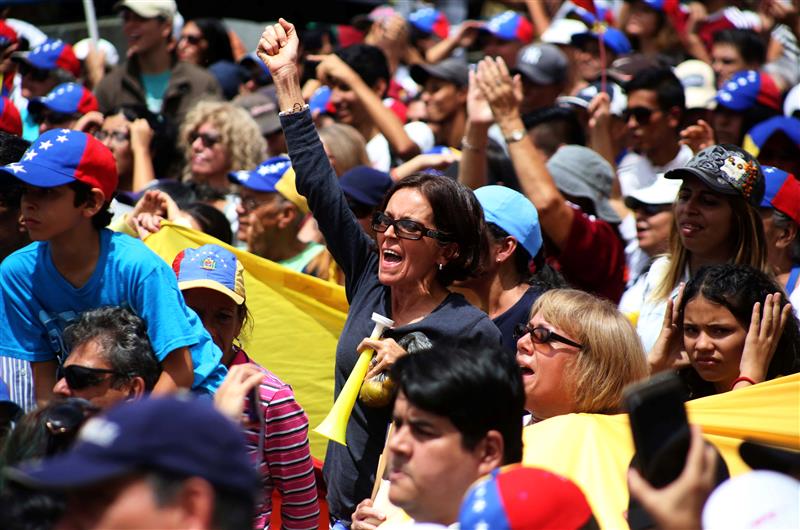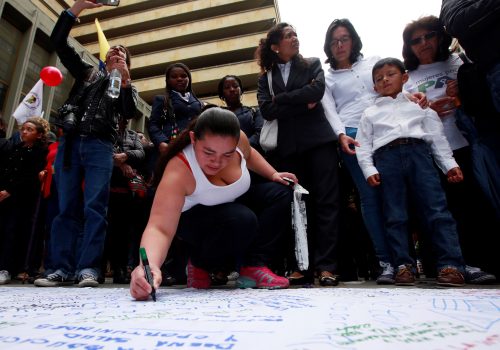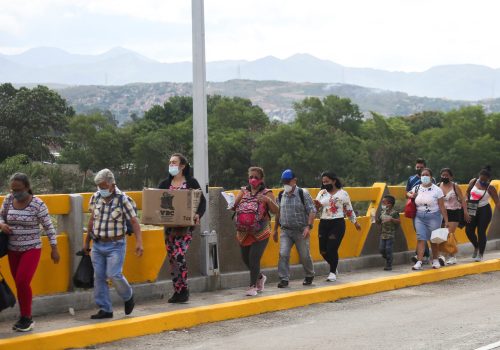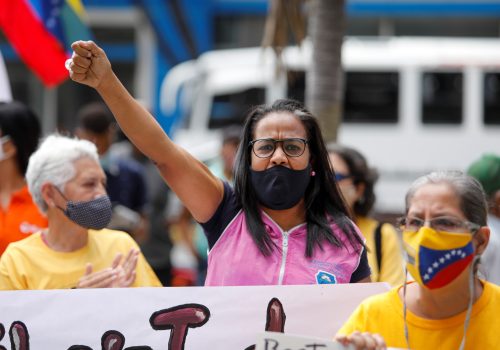The Adrienne Arsht Latin America Center’s Red de Apoyo women’s project is a partnership with Global Affairs Canada that convenes more than sixty 2015 Venezuelan National Assembly women representatives, Interim Government women ambassadors, and civil society leaders to promote increased and more equitable leadership of Venezuelan women in democratic and peace-building processes.
In February 2021, the Atlantic Council hosted a virtual roundtable for its Red de Apoyo project to discuss how Venezuelan women leaders could learn from women organizers during the 1970s and 1980s dictatorships in South America’s Southern Cone. Led by experts Francesca Lessa of the University of Oxford and Tamara Taraciuk of Human Rights Watch’s Americas Division, Red de Apoyo participants analyzed key differences between the cases of Argentina, Chile, and Uruguay and potential lessons learned for Venezuela today.
Both experts emphasized that women’s participation in restoring democracy was not a tangential topic to be discussed in isolation from national efforts led by the majority-men political elite. Rather, women’s participation must be a central component in rebuilding institutions that reflect a more diverse, just, and equal society. Both speakers also highlighted the important task of triangulating between domestic institutions, foreign institutions, and multilateral institutions to achieve tangible policy outcomes. This triangulation serves to amplify existing women-led advocacy at the local level and galvanize action from influential stakeholders.
From the Southern Cone case studies, the Red de Apoyo members received the following actionable recommendations to implement in their role as democratic political leaders and civil society activists:
- Collect and document information as evidence of crimes committed by the Maduro government;
- Organize social mobilization activities including marches and protests;
- Assemble networks of activists at the national and transnational level to change public policy;
- Collaborate with academics and scientists in pro-democracy work;
- Practice strategic litigation of human rights cases in front of national and foreign courts;
- Present petitions and complaints in front of international institutions and non-governmental organizations;
- Share best practices and exchange experiences within and outside networks in Venezuela;
- Engage with foreign governments and raise awareness about human rights violations to influence foreign policy;
- Use social media to enhance the objectives above; and
- Use subnational engagement (state, municipal, and local) outreach to enhance the objectives above.
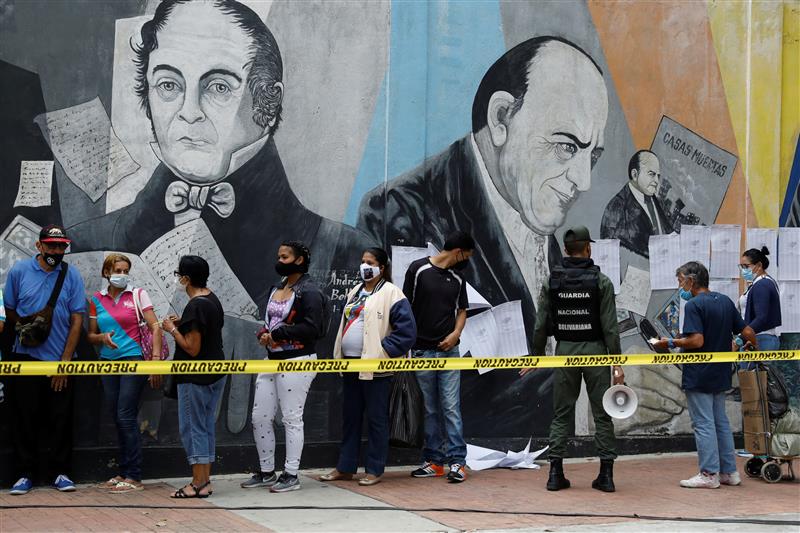
Given the recommendations outlined above for Venezuelan democratic leaders, US policymakers should consider responding through the following policy actions:
- Establish a bicameral congressional working group on Venezuela’s humanitarian crisis that elevates the evidence of crimes committed by the Maduro government to other international actors;
- Invite Venezuelan female democratic leaders to participate in briefings for the above working group;
- Facilitate meetings during working group events for Venezuelan female democratic leaders and international academics, civil society leaders, and leaders of multilateral organizations;
- Secure funding to support capacity-building efforts led on-the-ground in Venezuela; and
- To the extent permitted by Foreign Agents Registration Act, utilize the working group platform to draw media attention to strategic litigation efforts, petitions, and complaints that Venezuelan democratic activists are undertaking independently.
Related Content

The Adrienne Arsht Latin America Center broadens understanding of regional transformations and delivers constructive, results-oriented solutions to inform how the public and private sectors can advance hemispheric prosperity.
